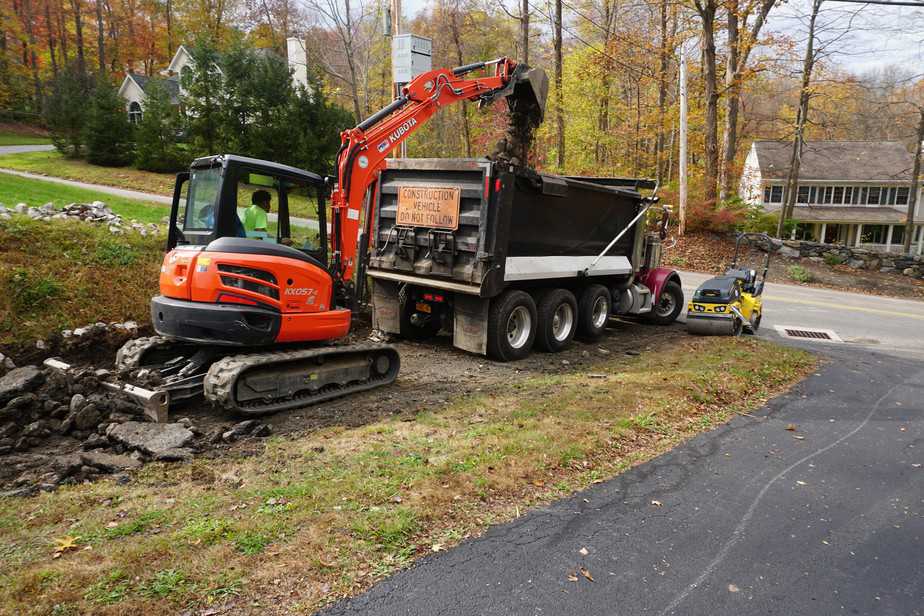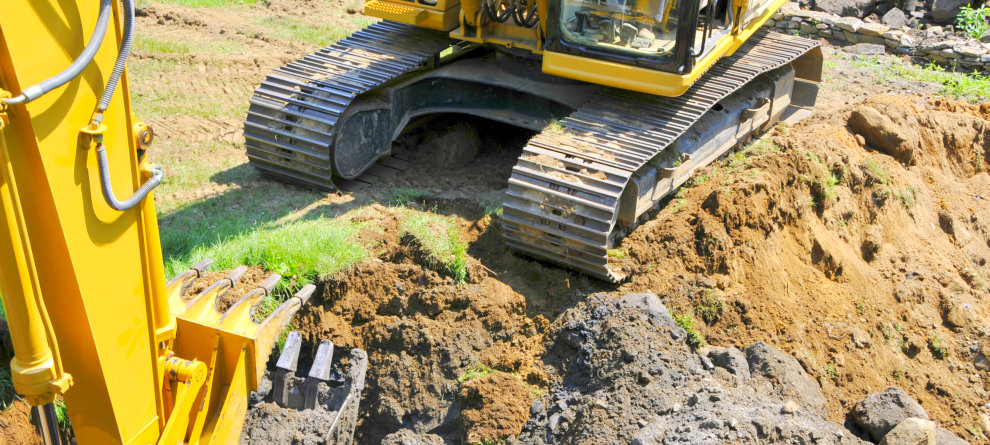Residential Excavating Ohio - Specialized Excavation for Ohio Homes
Wiki Article
Comprehensive Excavation Strategies: Mastering the Basics for Success
In the world of building and construction and civil engineering, the value of reliable excavation strategies can not be overstated. The mindful preparation, accurate implementation, and meticulous interest to information needed in excavation jobs require a comprehensive technique that incorporates different essential elements. From initial dirt analysis to the execution of safety and security steps and routine development tracking, grasping these core components is vital for attaining success in any kind of excavation venture. The real proficiency exists not simply in comprehending these fundamentals yet in seamlessly incorporating them to browse the intricacies of excavation jobs with skill.Comprehending Excavation Job Preparation

Effective excavation projects are constructed on the foundation of detailed and thorough preparation. The initial phase of any type of excavation project is the preparation phase, where vital decisions are made that can significantly affect the outcome of the job. Throughout this phase, it is important to collect all relevant info concerning the site, consisting of topographical surveys, soil make-up, and any type of potential threats that may exist. Recognizing the task timeline, range, and budget plan restraints is critical for creating a thorough excavation plan that makes sure the task's success.
One key facet of excavation job planning is the growth of a comprehensive timeline that describes the series of landmarks, tasks, and due dates. By thoroughly taking into consideration all these factors throughout the preparation phase, excavation projects can be implemented efficiently and properly, leading to successful results - excavating ohio.
Dirt Evaluation and Site Examination
Performing comprehensive soil analysis and site examination is a critical action in the preparation phase of any kind of excavation job. Dirt evaluation involves establishing the make-up, structure, and residential or commercial properties of the soil at the excavation website. This info is important for understanding the soil's bearing capability, dampness content, and capacity for disintegration, which are vital consider identifying the excavation approaches and equipment needed for the project.Site assessment goes beyond dirt evaluation and incorporates a more comprehensive analysis of the total website problems. This examination consists of determining any kind of possible threats, such as below ground energies, ecological issues, or unstable terrain, that could impact the excavation process. By completely assessing the site, task supervisors can develop efficient excavation techniques that prioritize safety, performance, and ecological security.
Making use of innovative technologies like ground-penetrating radar, dirt sampling, and drone studies can boost the precision and performance of soil evaluation and website assessment. Investing time and resources in these preliminary actions can eventually save time and prevent pricey delays or difficulties throughout the excavation process.
Tools Option and Application
Reliable excavation jobs rely greatly on calculated devices selection and application to make sure optimal performance and productivity. Picking the best equipment for the task is vital in optimizing effectiveness and minimizing downtime. Variables such as the kind of soil, depth of excavation, and job extent play a considerable duty in figuring out one of the most suitable devices for the job available.
Along with picking the ideal tools, correct application is vital to job success. Operators needs to be educated to handle the equipment safely and efficiently - lancaster trenching. Normal maintenance checks and timely repairs help prevent malfunctions and ensure regular efficiency throughout the task
Precaution and Regulations Compliance
In the world of excavation tasks, prioritizing security measures and compliance with policies is critical to guaranteeing a protected and lawfully sound functional atmosphere. Precaution encompass an array of techniques, consisting of carrying out complete site assessments, applying appropriate signage and barriers, and giving appropriate safety training for all employees associated with the excavation procedure. Adherence to guidelines, such as OSHA requirements in the USA, makes sure that the excavation job satisfies the necessary requirements to protect employees, onlookers, and the surrounding atmosphere.
Monitoring Progress and Adjusting Approaches
Exactly how can project managers properly track the development of excavation jobs and adapt their methods accordingly to enhance end results? Surveillance progression is important for making certain that excavation projects stay on track and fulfill target dates.
Conclusion
find out here nowTo conclude, grasping the fundamentals of comprehensive excavation strategies is crucial for the success of any kind of job. By understanding job preparation, assessing soil and website problems, selecting ideal tools, adhering to safety laws, right here and keeping an eye on progress, project supervisors can make certain a smooth and reliable excavation process. Implementing these strategies will certainly result in effective outcomes and lessen prospective risks or obstacles during the excavation job.
The initial phase of any excavation job is the planning stage, where critical decisions are made that can significantly impact the result of the task. Comprehending the task budget, scope, and timeline restraints is critical for producing a comprehensive excavation strategy that makes certain the project's success.
How can forecast supervisors effectively track the innovation of excavation jobs and adapt their methods as necessary to optimize results? By very closely monitoring progress and being ready to adapt approaches, job supervisors can improve the total success of excavation tasks.
By recognizing task planning, analyzing soil and site conditions, selecting proper tools, abiding with safety and security regulations, and keeping track of development, task supervisors can make certain a smooth and reliable excavation procedure.
Report this wiki page